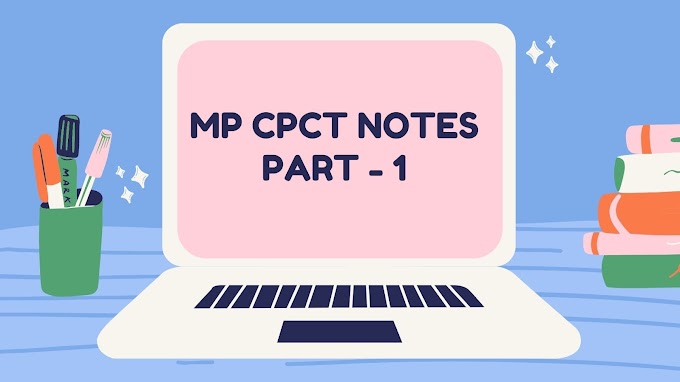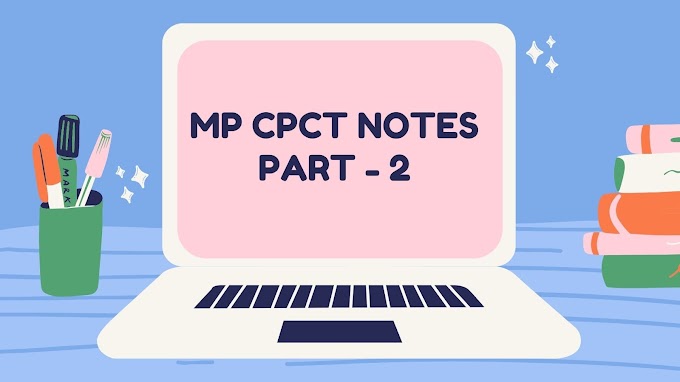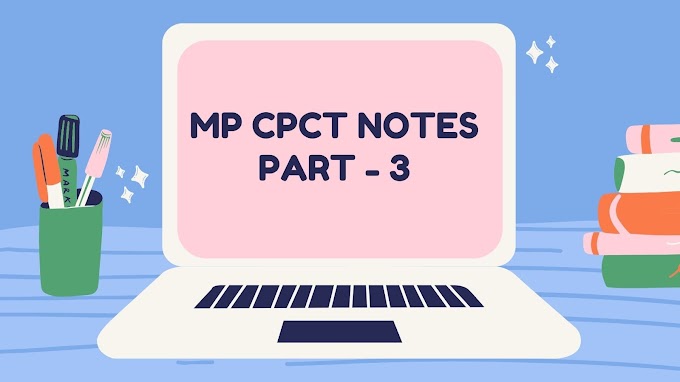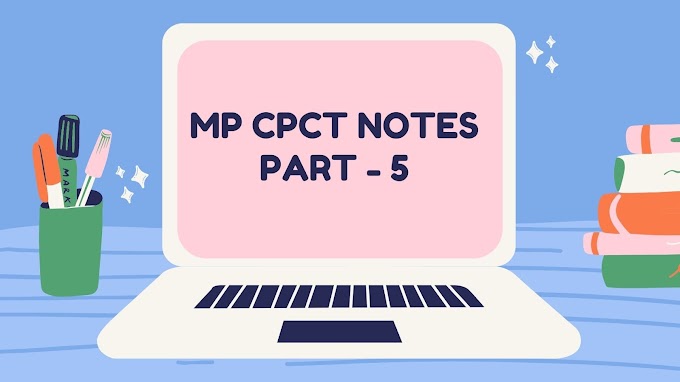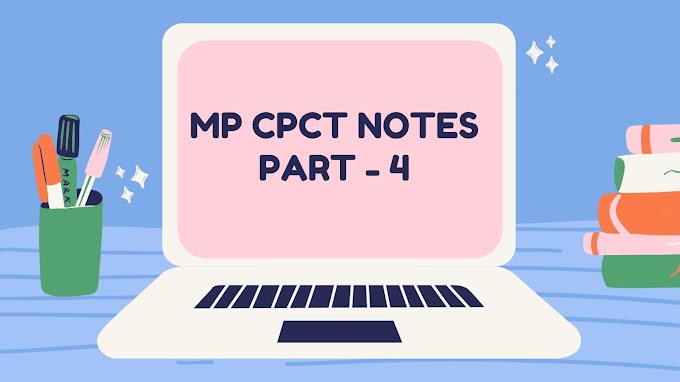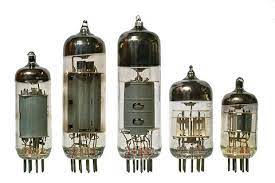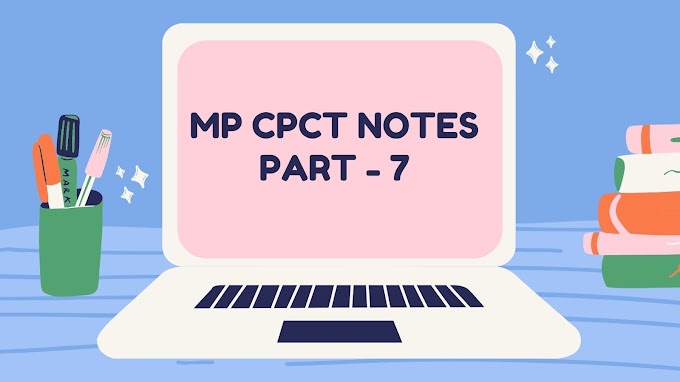MP CPCT Notes Part 3 - Computer Hardware - Output Devices
Output Device -
Any device which gives us output about something are called Output devices. Output is anything that comes out of a computer. Output can be meaningful information and can appear in a variety of forms.
Monitor or Visual Display Unit-
 |
| Monitor image by - www.pexels.com |
Monitor is also known as VDU. It is used to display a wide variety of information, such as text, graphics, video, animations, icons etc.
Printer
Printer is an output device which converts soft copy of computer to hard copy. Printer is an output device which is for printing computer information on the paper. These printed copy is called hard copy. For printing anything, printer uses its own inbuilt memory.
Types of Printer (On The Basis of Their Mechanism )
1.Impact Printer.
An impact printer is a type of printer that operates by striking a metal or plastic head against an ink ribbon. The ball spins to each character before printing it on the page.While impact printers still have some uses (such as printing carbon copies), most printers are now non-impact printers.
Examples of Impact Printer are following -
i.Dot Matrix Printer -
 |
| Dot Matrix Printer Image Source -www.google.com |
Dot- matrix printer use a set of closely spaced pins and a ribbon to print letters or other characters on a page.These printers actually strike the page to print a character, much like a typewriter. Dot matrix printers very in terms of speed and the number of pins they have. They can run at a speed anywhere between 50 and 500 CPS (Character Per Second) . The number of pins, which can vary between 9 to 24, determines the quality of the print job. Dot matrix printers are commonly used for printing invoices, purchases orders, shipping forms, labels, and other multi-part forms.
ii.Daisy Wheel Printer
 |
| Daisy Wheel used in printer |
Daisy wheel printing is an impact printing technology. It uses interchangeable pre-formed type elements, each with typically 96 glyphs, to generate high-quality output comparable to premium typewriters , but two to three times faster.
iii.Line Printer -
 |
| Line printer |
A line printer prints one entire line of text before advancing to another line. Most early line printers were impact printers.Line printers are mostly associated with unit record equipment and the early days of digital computing, but the technology is still in use. Print speeds of 600 lines per minute(approximately 10 pages per minute) were achieved in the 1950's, later increasing to as much as 1200 lpm(Line Per Minute). Line printers print a complete line at a time and have speeds in the range of 150 to 2500 lines per minute.
iv. Chain Printer -
 |
| Mechanism of chain printer |
An obsolete type of solid-font line printer in which the font was etched or engraved on small plates linked together to form a chain. The chain was connected around two sprocket wheels so that the straight part of the chain between the wheels ran parallel to the paper and spanned the line to be printed.
v. Drum Printer -
 |
| Drum printer mechanism |
An impact printer in which a complete set of characters for each print position on a line is on a continuously rotating drum behind an inked ribbon, with paper in front of the ribbon; identical characters are printed simultaneously at all required positions on a line, on the fly, by signal-controlled hammers
2.Non Impact Printer.
Non-Impact printers don't uses any direct contact between ink ribbon and paper. They uses laser, xerographic, electrostatic, chemical or inkjet technology. These printers are less noisy and don't have mechanical moving parts to conduct printing.
Examples of Non- Impact Printer are following -
i.Laser Printer -
 |
Laser printers operate by shining a laser beam to produce an image on a drum.The drum is then rolled through toner (ink in form of powder), and the electrically charged portions of the drum pick up ink. Finally, using a combination of heat and pressure, the ink on the drum is transferred onto the page. Laser printers print very fast, and the toner cartridges work a long time.Color laser printers use the same toner-based printing process as black and white laser printers, except that the combine four different toner colors. These are the most high quality printers.
ii.Inkjet Printer -
Ink-jets printers spray ionized tiny drops of ink onto a page to create an image through nozzles. Almost all ink-jets offer a color option as standard, in varying degrees of resolution.
Ink-jet printers are capable of producing high quality print which almost matches the quality of a laser printer.A standard ink-jet printer has a resolution of 300 dots per inch. These are silent printers as they do not make much noise while printing a document.
iii.Thermal Printer -
 |
| Thermal Printer |
Thermal printers are used most commonly to create labels, safety signs, way finding markers, bar codes, shipping labels, and other heavily-used items.
Plotter -
 |
| Plotter |
Plotters are large-scale printers that are very accurate at reproducing line drawings. They are commonly used for technical drawings such as engineering drawings o architectural blueprints. The two basic types of plotters are called flatbed plotters and drum plotters. Flatbed plotters are horizontally aligned with a flat surface to which a piece of paper is attached. The paper remains stationary and the printer moves pens across the paper to draw the image. Drum plotters, also called upright plotters, are vertically positioned. They have a drum that the paper rolls on. Drum plotters usually make more noise and are more compact than flatbed plotters.
Speaker -
 |
| Speaker |
Thanks for reading, Have a good day !
Read MP CPCT Notes Part 1 - Familiarity with computer system
Read MP CPCT Notes Part 2 - Computer Input Devices
Read MP CPCT Notes Part 4 - Computer Memory & its types.
Read MP CPCT Notes Part 5 - Computer Hardware Components
Read MP CPCT Notes Part 6 - Software, software Categories.
Read MP CPCT Notes Part 7- Computer Languages, Memory Units





